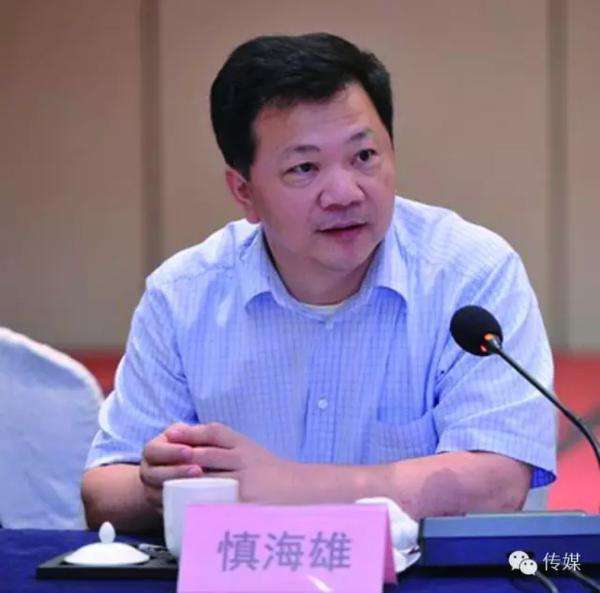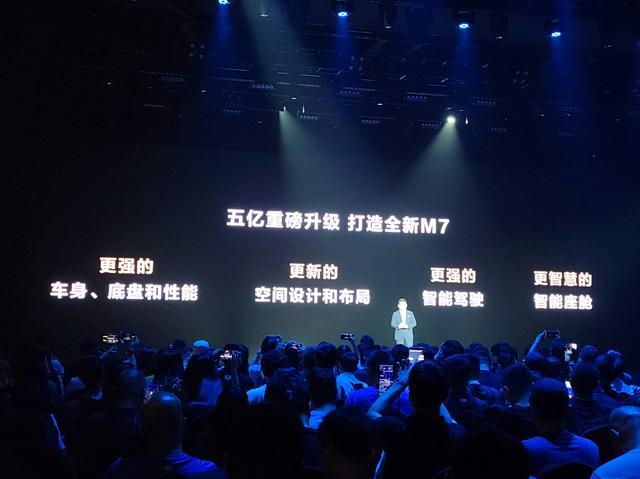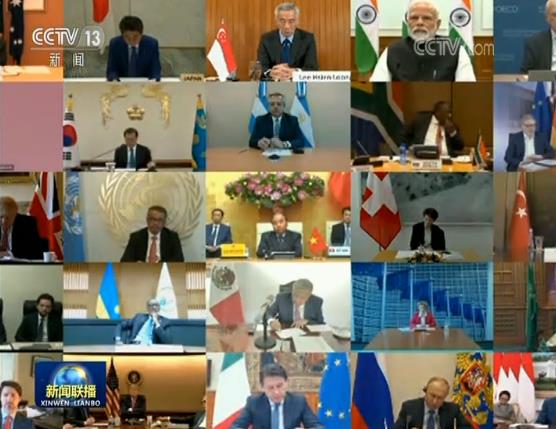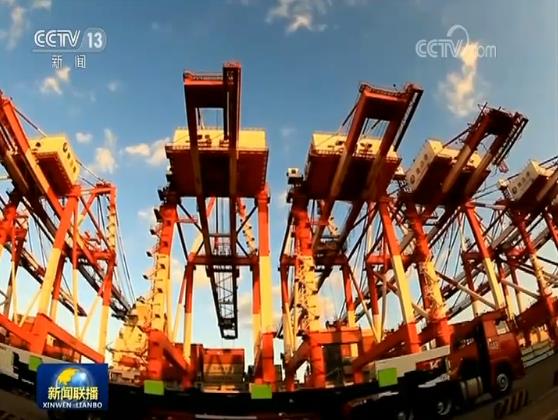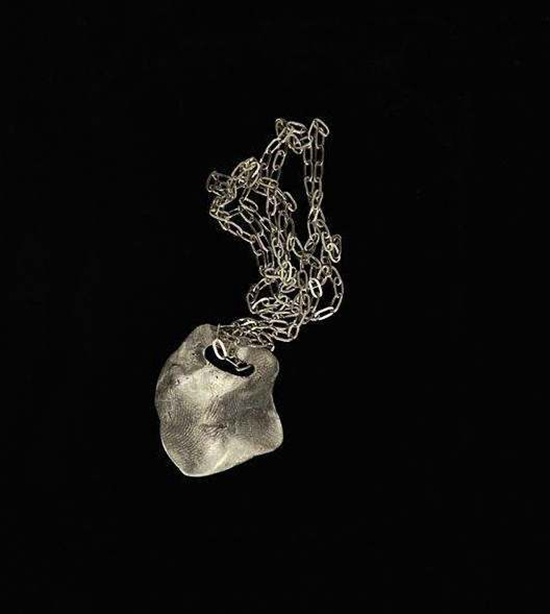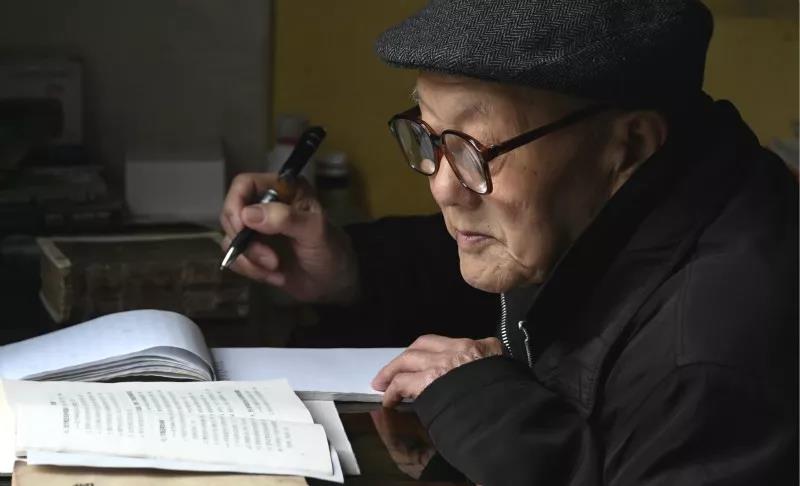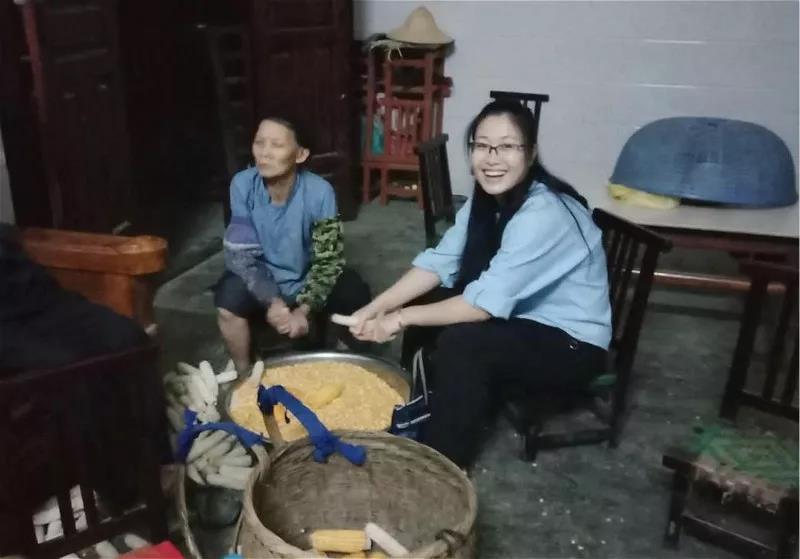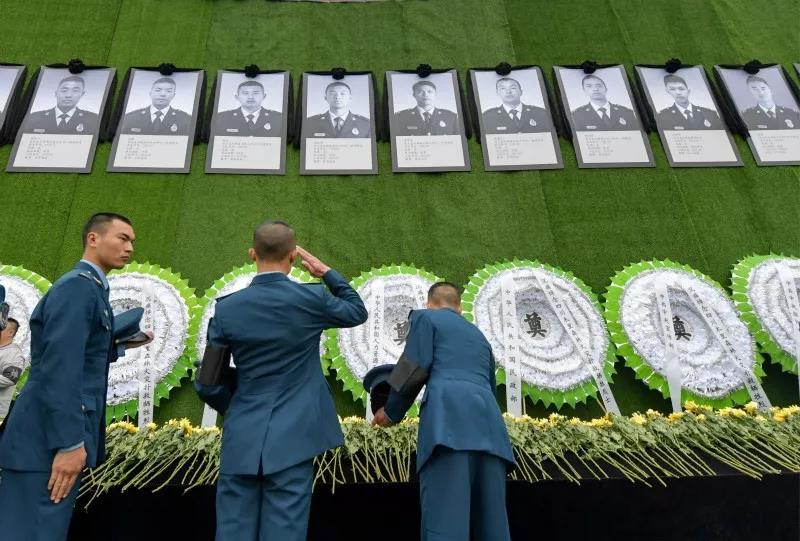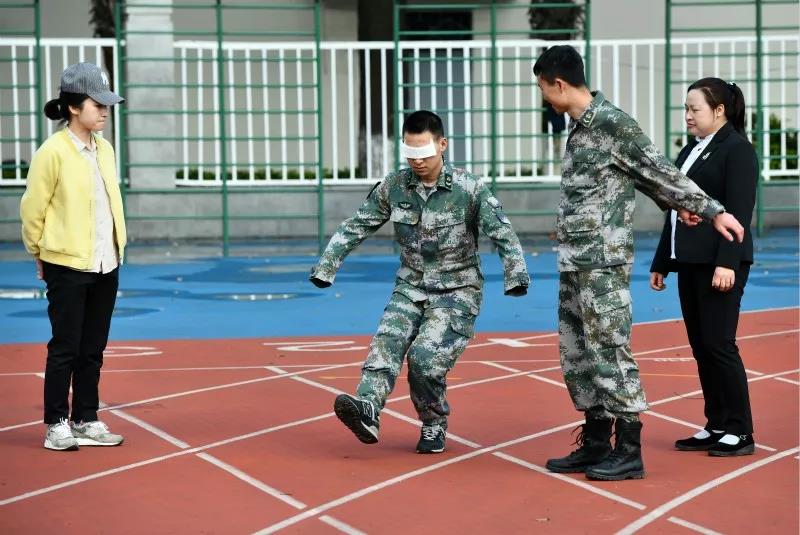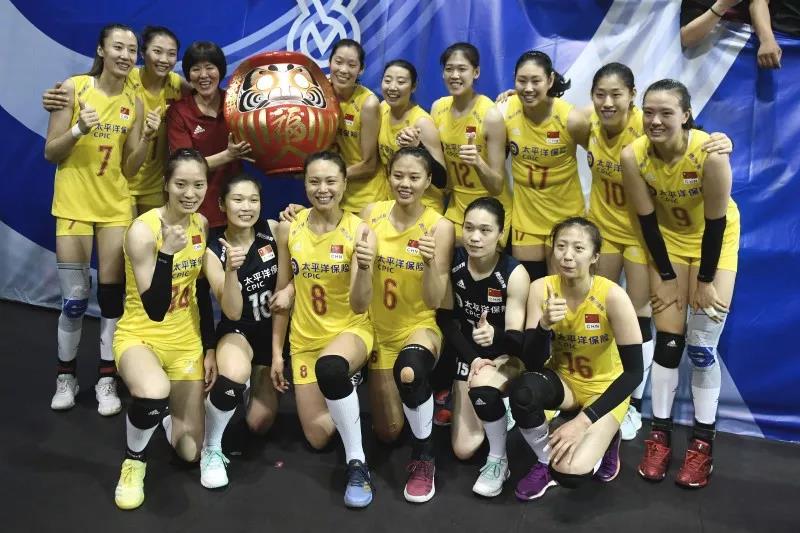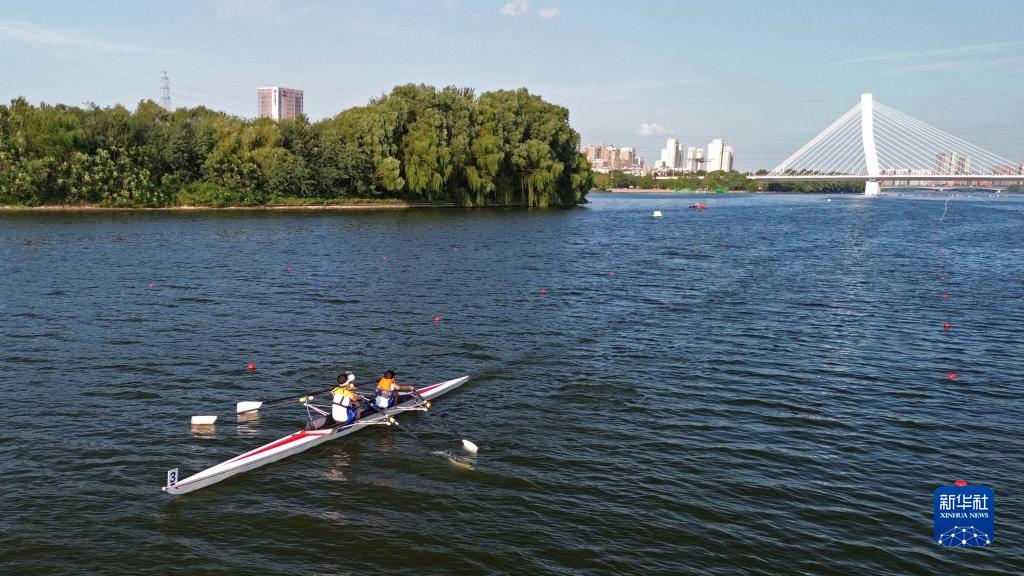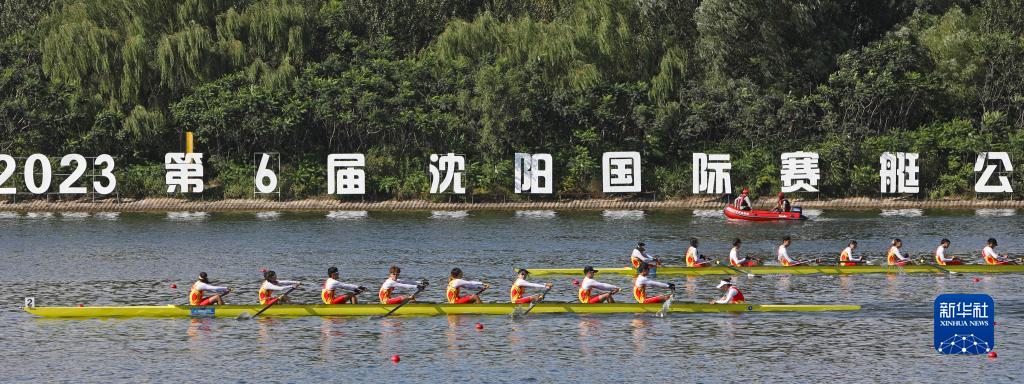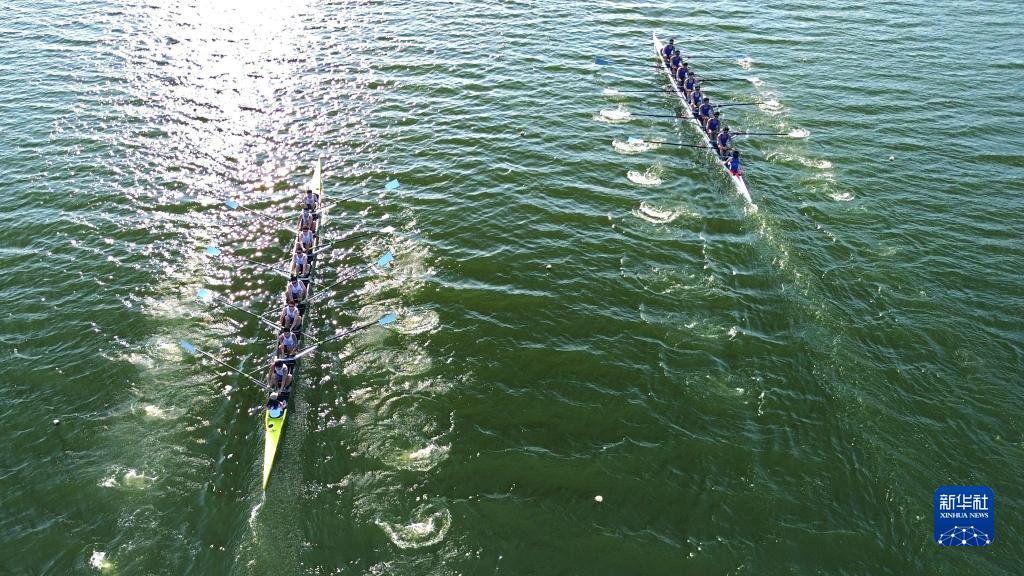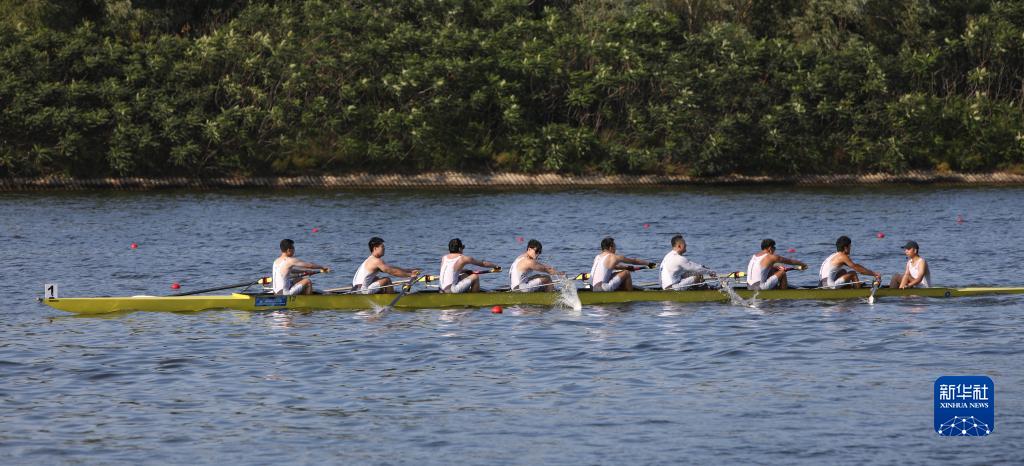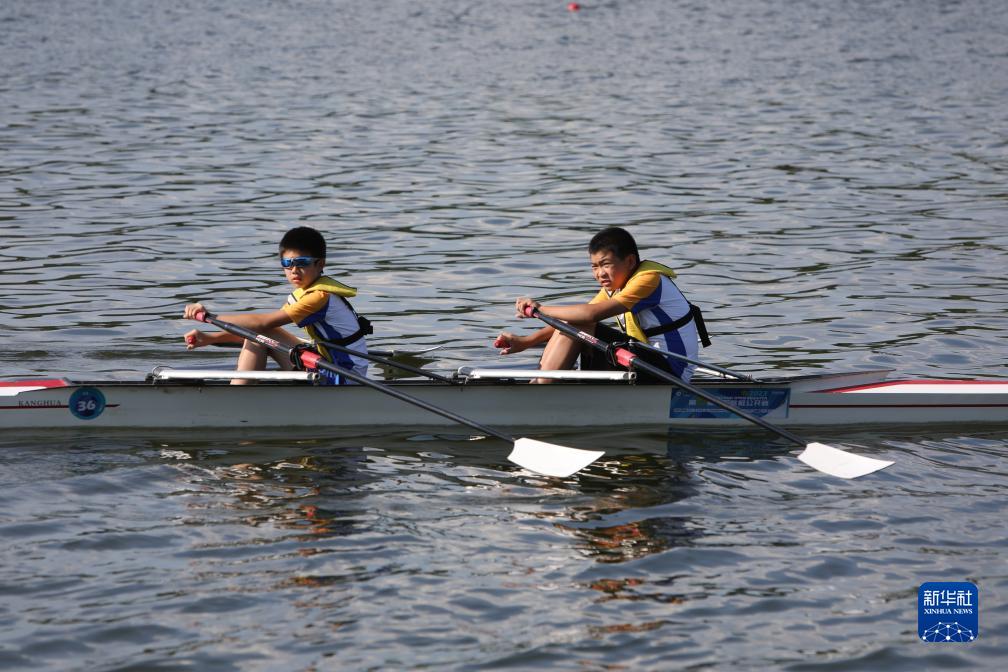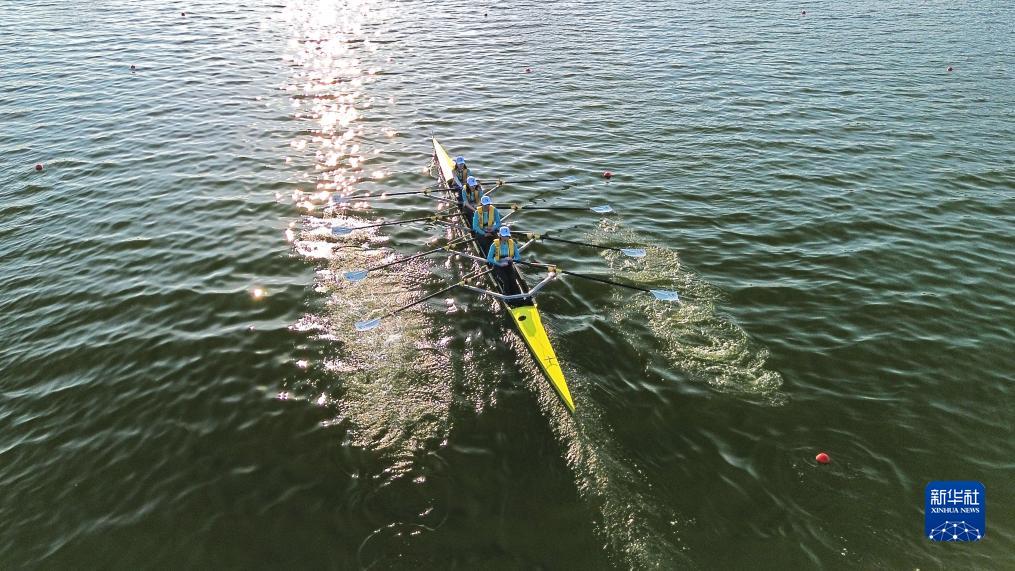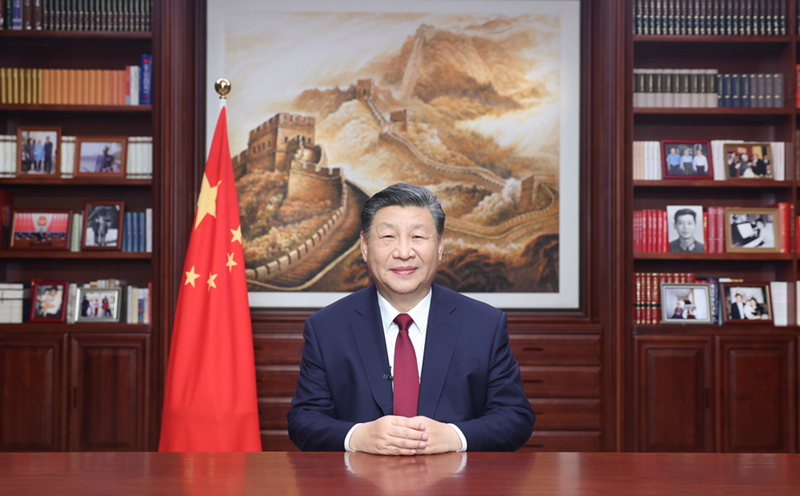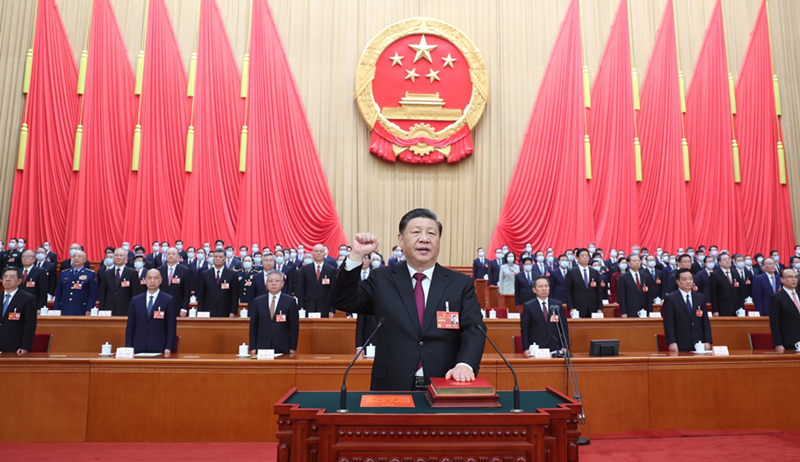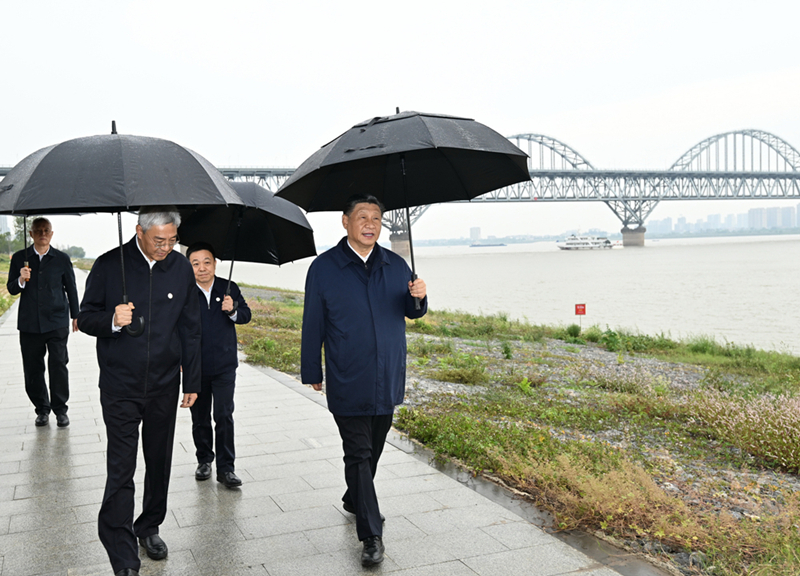Summary of News Network on Thursday, February 23rd, 2023
1. The 39th meeting of the 13th the National People’s Congress Standing Committee (NPCSC) was held in Beijing.
The 39th session of the 13th the National People’s Congress Standing Committee (NPCSC) held its first plenary meeting in the Great Hall of the People on the morning of 23rd. Presided over by Chairman Li Zhanshu.
At the meeting, the Central Military Commission (CMC)’s proposal to submit a draft decision on the application of some provisions of the Criminal Procedure Law in wartime adjustment of the armed forces was considered. Entrusted by the Central Military Commission, Wang Renhua, secretary of the Political and Legal Committee of the Central Military Commission, made an explanation.
An important task of this meeting of the Standing Committee is to prepare for the first session of the 14th National People’s Congress. To this end, the meeting reviewed the draft report on the National People’s Congress Standing Committee (NPCSC)’s work, and considered the proposal of the chairman’s meeting to submit for consideration the draft agenda of the first session of the 14th National People’s Congress, the draft list of the presidium and secretary-general, and the draft list of people attending the meeting.
The meeting heard Yang Zhenwu, Secretary-General of the Standing Committee of the 13th National People’s Congress’s report on the election of deputies to the 14th National People’s Congress by the General Office of the National People’s Congress Standing Committee (NPCSC). The report pointed out that the election of deputies to the 14th National People’s Congress was carried out successfully, under the leadership of the Communist Party of China (CPC), with the people being the masters of their own affairs, in strict accordance with the law, and in strict discipline of changing the term. There are 2977 deputies to the 14th National People’s Congress. On the whole, the deputies to the 14th National People’s Congress are widely representative, which ensures that all regions, ethnic groups and all aspects have the requirements of an appropriate number of representatives.
The meeting reviewed the report on the qualification of deputies to the 14th National People’s Congress made by Wu Yuliang, chairman of the the National People’s Congress Standing Committee (NPCSC) Credentials Committee. According to the provisions of the Election Law and the Organic Law of the National People’s Congress, the credentials committee has examined whether the elected deputies meet the basic conditions of deputies stipulated by the Constitution and laws, whether the election conforms to the procedures stipulated by law, and whether there are any illegal acts that undermine the election and other invalid elections. After examination, the election of deputies to the 14th National People’s Congress in 35 electoral units was in compliance with the law, and the qualifications of 2,977 deputies to the 14th National People’s Congress were valid. the National People’s Congress Standing Committee (NPCSC) was requested to confirm and publish the list of deputies.
The meeting heard a report by Wu Yuliang on the qualifications of individual deputies to the 13th National People’s Congress.
The meeting also considered the case of appointment and dismissal.
2. The 13th the National People’s Congress Standing Committee (NPCSC) held the 134th Chairman’s Meeting.
The 134th Chairman’s Meeting of the 13th the National People’s Congress Standing Committee (NPCSC) was held in the Great Hall of the People on the afternoon of 23rd. Chairman Li Zhanshu presided over the meeting.
At the meeting, Li Fei, chairman of the Constitution and Law Committee of the National People’s Congress, gave a report on the deliberation results of the draft decision on the application of some provisions of the Criminal Procedure Law of People’s Republic of China (PRC) to the wartime adjustment of the armed forces, and considered the revised draft.
The meeting heard Yang Zhenwu, Secretary-General of the Standing Committee of the 13th National People’s Congress’s report on the deliberation of the review report on the qualifications of deputies to the 14th National People’s Congress, the report on the deliberation of the draft agenda of the first session of the 14th National People’s Congress, the draft list of presidium and secretary-general, and the draft list of people attending the meeting, the report on the qualifications of individual deputies to the 13th National People’s Congress and the report on the deliberation of the appointment and dismissal case.
The chairman’s meeting decided to submit the above-mentioned revised draft and draft to the Standing Committee meeting for deliberation.
3. The State Council of China issued the Opinions on Further Deepening Reform and Promoting the Healthy Development of Rural Medical and Health System.
Recently, the general offices of the General Office of the Central Committee of the CPC and the State Council issued the Opinions on Further Deepening Reform and Promoting the Healthy Development of Rural Medical and Health System.
The "Opinions" pointed out that rural medical and health work should be placed in an important position in rural revitalization, with the grassroots as the focus and the reform of the system and mechanism as the driving force, to speed up the expansion and balanced distribution of high-quality medical and health resources in the county, to promote the shift of focus and the sinking of resources, and to improve the rural medical and health system that adapts to rural characteristics and is high-quality and efficient, so that the broad masses of farmers can obtain more fair, accessible and systematic medical and health services nearby, providing a strong guarantee for safeguarding people’s health.
The objectives and tasks set in the Opinions are: by 2025, the reform and development of rural medical and health systems have made remarkable progress. The functional layout of rural medical and health institutions is more balanced and reasonable, the infrastructure conditions are obviously improved, the intelligent and digital applications are gradually popularized, the characteristics and advantages of traditional Chinese medicine are further exerted, the ability to prevent and treat diseases and health management is significantly improved, and the ability to deal with major epidemic situations and public health emergencies in rural areas is continuously enhanced. Rural medical and health personnel have developed and expanded, the quality and structure of personnel have been obviously optimized, the level of treatment has been improved, and social security issues such as old-age care have been effectively solved. The operating mechanism of the rural medical and health system has been further improved, and the investment mechanism has been basically sound. The pattern of graded diagnosis and treatment at the grass-roots level, including first consultation, two-way referral, rapid and slow division, and linkage between the upper and lower levels has taken shape.
4. A new round of deepening and upgrading of state-owned enterprise reform will be implemented.
Today (February 23rd), the State Council Office held a series of press conferences on the theme of "Authority begins". The relevant person in charge of the State-owned Assets Supervision and Administration Commission of the State Council said that the optimization and structural adjustment of the state-owned economy have been accelerating in the past 10 years, and a new round of deepening and upgrading the reform of state-owned enterprises will be implemented in depth this year.
The data shows that since the 18th National Congress of the Communist Party of China, the number of listed companies controlled by central enterprises has increased from 368 to 453, the quality and efficiency of central enterprises have been comprehensively improved, and the total profit has doubled.
The relevant person in charge of the State-owned Assets Supervision and Administration Commission said that this year, a new round of state-owned enterprise reform will be further implemented, the layout structure of the state-owned economy will be accelerated, and the function of serving the national strategy will be enhanced. At the same time, speed up the improvement of modern corporate governance of state-owned enterprises with China characteristics, and truly operate according to the market-oriented mechanism. Further speed up and improve the system and mechanism conducive to scientific and technological innovation of state-owned enterprises, and create innovative state-owned enterprises. Efforts should be made to solve outstanding problems such as mechanism, investment, talents and transformation that restrict enterprises’ scientific and technological innovation, improve the incentive and restraint mechanism, improve the talent training system, further strengthen the dominant position of enterprises’ innovation, and truly fulfill the role of the national team of scientific and technological innovation.
5. Ministry of Transport: Accelerate the construction of a powerful transportation country
The relevant person in charge of the Ministry of Transport said today (February 23) at a series of news conferences on the theme of "authoritative departments speak first" that the construction of a transportation power will be accelerated this year, and the "Five-year Action Plan for Accelerating the Construction of a Transportation Power" will be formulated and implemented.
This year is the first year to fully implement the spirit of the 20th National Congress of the Communist Party of China. The Ministry of Transport is about to formulate and implement the Five-year Action Plan for Accelerating the Construction of a Transport Power (2023-2027), which focuses on strengthening the construction of modern comprehensive transportation infrastructure, rural revitalization of transportation services and coordinated regional development, strengthening the development driven by innovation in transportation science and technology, and improving the quality of transportation services, thus improving the top-level design for accelerating the construction of a transportation power.
In 2022, the national investment in transportation fixed assets exceeded 3.8 trillion yuan, a year-on-year increase of over 6%, which contributed to stabilizing the economic market and keeping the economic operation in a reasonable range. This year, we will continue to actively expand effective investment in transportation, focusing on networking, supplementing the network and strengthening the chain, and accelerate the construction of key projects; Strengthen capital and policy guarantee, and effectively promote the investment of the whole society through government investment and policy incentives; Provide strong support for promoting the overall improvement of economic operation.
6. Spring ploughing and preparation for ploughing have been carried out one after another throughout the country.
At present, all localities take effective measures to do a good job in spring field management and spring ploughing, laying a solid foundation for stable grain supply throughout the year.
Now is the critical period for wheat to turn green. In Puyang, Henan Province, hundreds of agricultural technology experts guided farmers to accurately promote the transformation of wheat seedlings from the aspects of wheat moisture analysis, pest control and spring fertilizer and water management. In the past two days, in Yixing, Jiangsu, a self-propelled spray bar sprayer was driven into the field, and agricultural technicians scientifically formulated the formulation of chemicals, which helped to save costs and increase efficiency in spring field management through mechanized plant protection.
With the help of agricultural machinery, spring ploughing is more efficient. In Jiangxi, more than 200,000 sets of agricultural machinery and tools prepared by various localities have successively gone to the fields to carry out spring ploughing and preparation for ploughing. Ganzhou, Ji ‘an, Xinyu, Jiujiang and other places have also organized skilled agricultural workers to set up operation service teams to carry out mechanized spring ploughing operations across regions. All districts and counties in Chongqing seize the farming season and pay close attention to farmland cultivation. Fuling District organized more than 50,000 agricultural machinery to put into spring ploughing production this year to improve the mechanization level of spring ploughing, and at the same time, trained agricultural machinery personnel in skills.
Farming preparation in the north is also under way. In Tailai County, Heilongjiang Province, the construction of high-standard farmland is stepping up, providing a strong guarantee for spring ploughing production this year.
7. Improve the measures of "Class B and B Management" and continue to consolidate the results of epidemic prevention and control.
The the State Council Joint Prevention and Control Mechanism held a press conference today (February 23rd), inviting responsible persons and experts from relevant departments to introduce the situation of consolidating major achievements in epidemic prevention and control.
According to the spokesperson of the National Health and Wellness Commission, the epidemic situation in various places has been sporadic in recent days, and the prevention and control situation has generally improved, and it has smoothly entered the stage of "Class B and B management" normalization prevention and control.
The relevant person in charge of the Department of Medical Administration of the National Health and Wellness Commission introduced that medical treatment should be carried out with all efforts around "protecting health and preventing severe diseases" and graded health management should be implemented for key populations; Rapidly expand medical resources to ensure the need for treatment; Do a good job in prevention and treatment of epidemic situation in rural areas.
According to the person in charge of the Monitoring and Early Warning Department of the National Bureau for Disease Control and Prevention, on the basis of direct reporting of infectious diseases on the Internet, a multi-channel monitoring system has been initially formed, which takes into account normal and emergency, entry and local, urban and rural, general population and key population.
According to experts from the Center for Disease Control and Prevention of China, at present, China has monitored and found a case of locally associated XBB.1.5 caused by imported cases, but its pathogenicity has not increased, so it is unlikely to trigger a new round of epidemic in the near future. At present, it is the epidemic season of respiratory infectious diseases such as influenza and respiratory syncytial virus infection in China, and it is necessary to continue to strengthen the monitoring and early warning of respiratory viruses such as influenza.
8. Investment in the central budget supports the construction of basic networks in small and medium-sized cities.
Recently, the National Development and Reform Commission officially issued the investment plan within the central budget for 2023, supported the first batch of more than 100 small and medium-sized cities in 11 central, western and northeastern provinces, and accelerated the construction of basic networks such as 5G and Gigabit optical networks.
9. In 2022, the volume of commodity futures and options in China accounted for over 70% of the global total.
According to the latest data of China Futures Association, in 2022, China’s futures market had a turnover of 6.768 billion lots, with a turnover of 534.9 trillion yuan. Among them, the volume of commodity futures and options accounts for 72.3% of the global total. By the end of 2022, the number of listed futures options in China has reached 110, including 93 commodities and 17 finance.
10. In 2022, the total number of Central European (Asian) trains in the Yangtze River Delta reached a new high.
In 2022, there were 5,063 China-Europe (Asia) classes in the Yangtze River Delta region, an increase of 668 classes compared with 2021, a year-on-year increase of 15.2%, and the total number of classes opened reached a record high.
11. This year, the freight volume of rail-sea combined trains in the new land-sea corridor in the west has exceeded 100,000 TEUs.
The reporter learned from China State Railway Group Co.,Ltd. that up to now, the railway-sea intermodal trains in the new land-sea passage in the west have transported 102,000 TEUs this year, up by 8.01% year-on-year. At present, the rail-sea intermodal trains of the new land-sea passage in the west have radiated to 113 railway stations in 17 provinces in China, and the transportation categories include more than 640 varieties such as auto parts and new energy vehicles.
